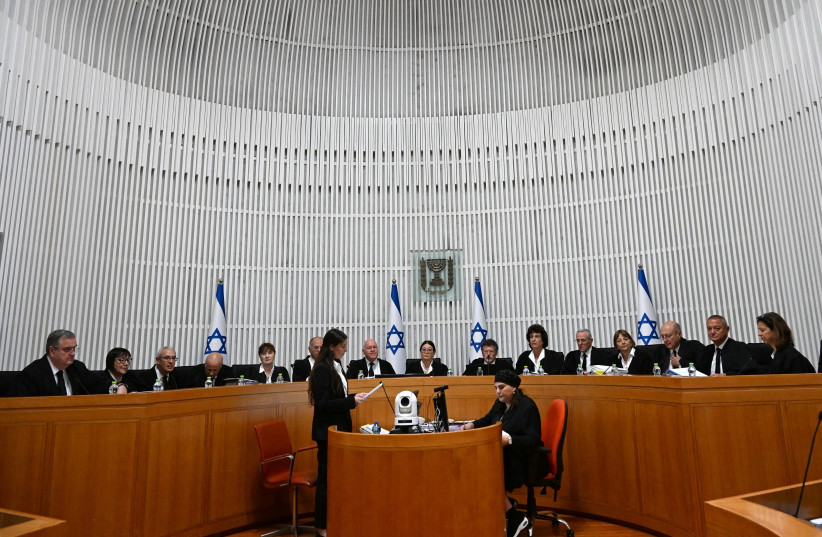The High Court of Justice ruled today that women are eligible to be considered for the committee that selects Chief Rabbis and the Chief Rabbinate Council. The ruling did not enable women to be considered as rabbis themselves.
The court did, however, determine that the term “rabbi,” in a legal context, can in certain circumstances apply to “all those who have an appropriate Torah and Halachic education,” including women, when sex is not specified in the law, and the role assigned is not strictly the domain of an ordained rabbi.
The process in question is spelled out in Israel’s Chief Rabbinate Law of 1980.
The law directs that Chief Rabbis (Israel has two— one Ashkenazi and one Sephardic) are selected by an electoral assembly composed of 150 members, 80 of whom must be rabbis, and 10 of whom must be, in the language of the law, “rabbis, appointed by the Chief Rabbis of Israel, in consultation with the [Prime] Minister, and with the approval of the government.”
The details of the case
The case concerns the use of the word “rabbi” for those 10 appointed members of the electoral assembly: based on the principle that words in the law should be interpreted according to their simple meaning, rather than a technical one, when a specific meaning is not indicated, the court decided that the word “rabbi” applies to anyone with an authoritative knowledge of Jewish law and tradition.

“When we talk about a rabbi who issues halachic rulings, the meaning of the term in common use is of a rabbi who has been ordained,” the court said. But this is not the only context in which the term is used: “According to the regular and simple interpretation,” the judges found, “the term ‘rabbi’ is not interpreted by the public to refer [only] to someone with a certificate of ordination in hand.”
In the case of the electoral assembly, the court found, the purpose of appointing rabbis is not to decide a matter of halacha, but rather to represent the views and interests of the religious community, as part of the decision-making process for the election of the Chief Rabbi. Not only does the term invite a broader interpretation, but limiting the committee to men, the judges argued, comes at the expense of half the religious population.
The court also invoked the general rule that, unless a law specifically requires the application of halacha rather than civil law, it is not exempt from the Women’s Equal Rights Law of 1951, which forbids discrimination on the basis of sex. In the case of ambiguity, then, it is preferred to avoid any conflict with the law, and err on the side of nondiscrimination.
The impact of the decision is yet to be seen: it does not mandate, but merely permits, the inclusion of women, and the members of the 10-person panel in question must be appointed by the Rabbinate, in consultation with the Prime Minister and the government, and they may continue to only choose men, despite the ability to do otherwise.
Avraham Bloch contributed to this report.
